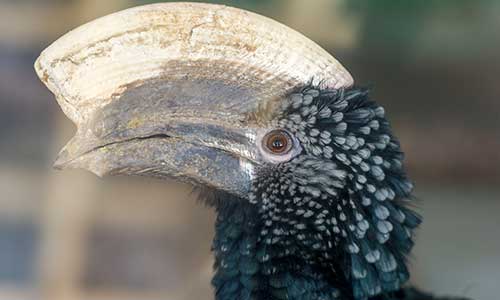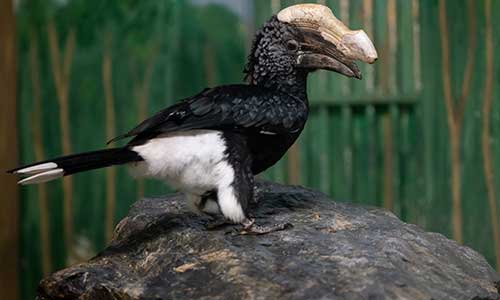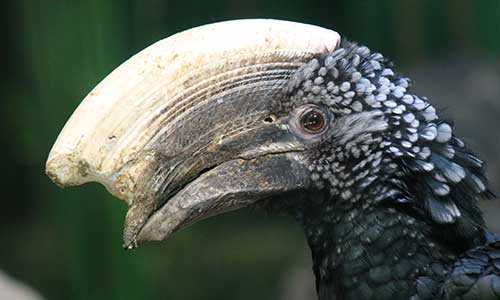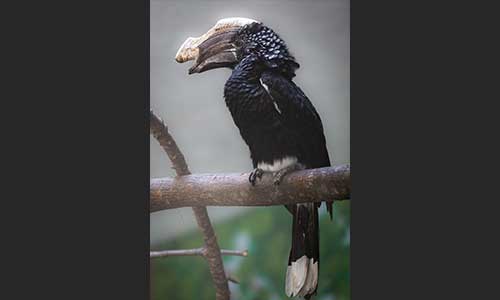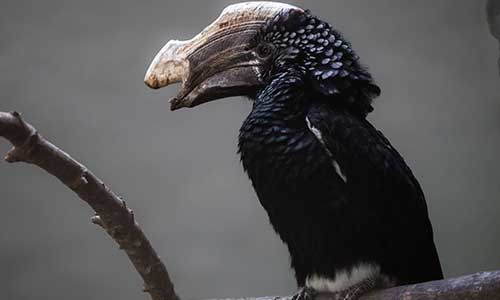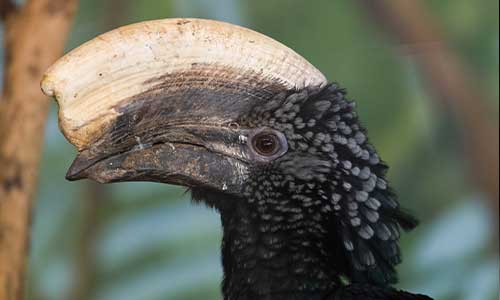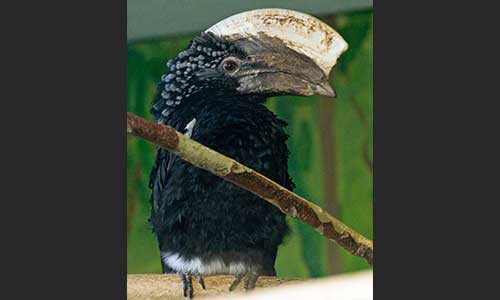Silvery-Cheeked Hornbill
Bycanistes brevis
About the Silvery-Cheeked Hornbill

Class: Aves
Order: Coraciiformes
Family: Bucerotidae
Genus: Bycanistes
Species: brevis
Size:
Up to 3 pounds
Diet:
Fruit, insects and sometimes small mammals, birds and reptiles.
Habitat/range:
They're found in lowland and coastal forests throughout Mozambique, Zimbabwe and northeastern South Africa.
Behavior:
Silvery-cheeked hornbills form in pairs or small family groups of three to four. Flocks of 20 have been observed at a feeding site, and sometimes 100 birds will gather together for a communal roost. They spend most of their time in the forest canopy but will descend to the ground for dust baths and to gather mud for nests.
Median Life Expectancy:
Up to 40 years
You Can Find This Animal in the Windows to the Wild
You might also like
At Franklin Park Zoo:
At Stone Zoo:

